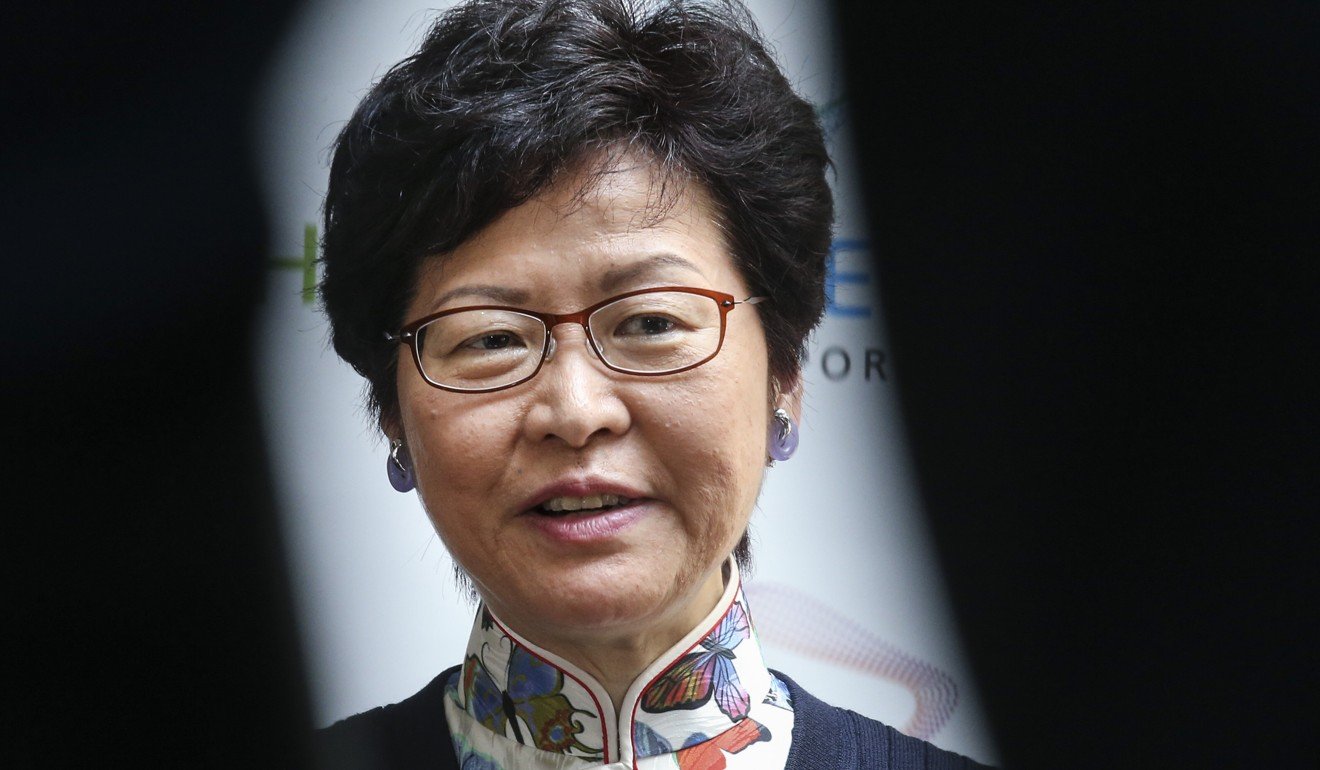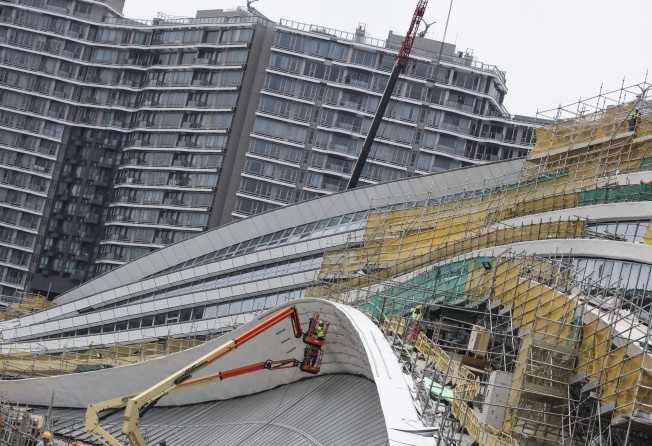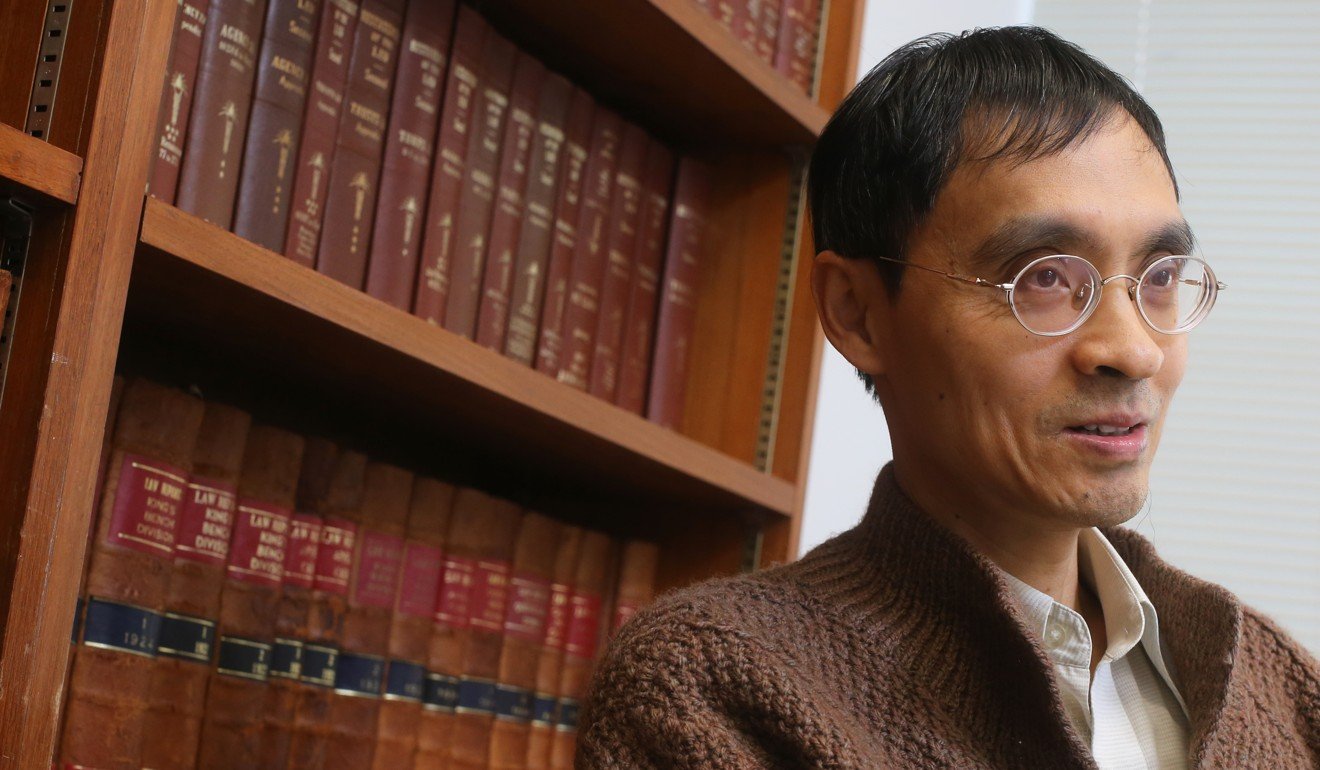
Carrie Lam makes it clear that Hong Kong government ‘will not overturn’ joint checkpoint plan
She says she will reflect concerns about Hongkongers’ freedoms to central government

Hong Kong leader Carrie Lam Cheng Yuet-ngor has made it clear her administration “will not overturn” a controversial proposal to allow mainland laws to be enforced in the city’s cross-border railway terminus.
But she pledged to reflect public concerns on the issue to the central government.
Ahead of her first trip to Beijing since taking office as chief executive a month ago, Lam urged opposition legislators, who have vowed to derail the joint checkpoint arrangement, to visit the West Kowloon terminus in person.

Lam was speaking hours after Basic Law Committee member Albert Chen Hung-yee, a law professor at the University of Hong Kong, said the arrangement was legally sound and the city’s liberties and rights would not be under threat at the railway facility.
The Hong Kong government announced last month that to fully maximise benefits from the rail link to Guangzhou, both local and mainland officers would operate under one roof when the HK$84.4 billion development opened in the third quarter of next year.
But pan-democratic lawmakers said the plan would destroy the “one country, two systems” principle, as they vowed to block the proposal in the Legislative Council.
Asked if she would discuss the matter with mainland officials during her Beijing trip, Lam said: “We came up with the arrangement after years of study about its legal foundation, and we will not overturn it. But if some residents are concerned ... I am willing to reflect their views.”
Dismissing accusations by pan-democrats about the lack of transparency behind the plan, Lam promised that the government would “fully cooperate”.
She then criticised the pan-democrats for boycotting recent visits led by MTR chairman Frederick Ma Si-hang to the West Kowloon terminus.

“We are willing to provide the floor plans requested by some lawmakers, but those plans are nothing compared to seeing the terminus in person,” Lam said.
Under the proposal, the co-location of checkpoints will be implemented by leasing a quarter of the premises to the mainland government after seeking authorisation from the National People’s Congress Standing Committee (NPCSC), China’s national legislative body.
The move will be based on Article 20 of the Basic Law, Hong Kong’s mini-constitution, which stipulates that the central government can grant the city power it does not already have.
On Saturday, executive councillor Ronny Tong Ka-wah suggested a clause be added in the resolution by the NPCSC to guarantee the plan would be “once and for all”. This would help ease Hongkongers’ mistrust in the central and local governments, he argued.
But Lam dismissed the suggestion, saying that the governments “cannot arbitrarily insert some phrases or clauses that are not very legal into such documents”.

Speaking on a Commercial Radio programme on Sunday, Chen had said that while mainland officers would enjoy almost full jurisdiction over the leased area, the freedom of Hong Kong residents would still be intact.
“Were Hong Kong residents under tight surveillance as they waited to check in at Shenzhen or Beijing? ... I don’t think the legal risk at West Kowloon terminus would increase under the government’s plan,” Chen said.
He agreed with the argument by local ministers that there was no need to conduct a formal public consultation on the project.
Speaking on the RTHK programme Letter to Hong Kong, Executive Council convenor Bernard Chan also defended the co-location arrangement and described it as a “no-brainer”.
“I realise that many people are suspicious of the government ... but they are barking up the wrong tree here,” Chan said.
“This is not something Beijing is imposing on Hong Kong. Hong Kong has asked Beijing for a co-location system – because it makes sense in practical terms.”